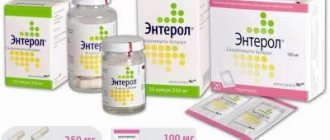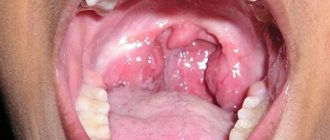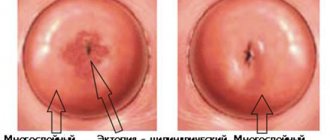Why is a cough dangerous during pregnancy?
A common cold cough does not threaten a normal pregnancy. It requires adequate treatment so that respiratory complications do not develop, which pose a threat to mother and baby.
If the pregnancy is difficult, with disturbances, then a cough can aggravate the condition and become a trigger for miscarriage or premature birth.
If there is a threat of spontaneous abortion in the early stages, coughing causes an additional increase in uterine tone, which increases the likelihood of miscarriage.
In pregnant women who suffer from early gestosis, for example, vomiting or drooling, cough provokes a worsening of symptoms, which leads to loss of fluid, exhaustion, and dehydration of the woman.
If there are signs of late gestosis, such as arterial hypertension, preeclampsia, severe coughing attacks increase blood pressure and provoke convulsive activity.
If the fetus suffers from hypoxia, there are signs of intrauterine growth retardation, then a paroxysmal, debilitating cough aggravates the hypoxia of the mother and, accordingly, the child.
We can say that pregnancy and cough do not threaten serious consequences for a woman and her baby if pregnancy proceeds without pathology, but if there are problems, several doctors should deal with the treatment at once.
Preventing attacks in the first trimester
Prevention is an important condition for maintaining the health of the expectant mother and fetus. To prevent a viral infectious disease, you should spend more time in the fresh air, avoid drafts and avoid hypothermia. Maintain order in the house, do wet cleaning and ventilate the room well.
Take multivitamin complexes, which are the best prevention of cough and runny nose in the early stages of expecting a baby. Eat fruits, vegetables, drink natural freshly squeezed juices.
Several recommendations on how to prevent coughing in the first trimester of pregnancy:
- Onions and garlic are ideal antiviral and antibacterial agents. It is recommended to consume these products fresh and add them to dishes. You can place plates with chopped “fragrant” vegetables around.
- Avoid places with large crowds of people, refuse public transport, especially during the ARVI season, because one patient can transmit the infection to everyone.
- Limit your exercise, maintain personal hygiene (wash your hands after going outside), and maintain cleanliness.
But taking hot baths in the first trimester of pregnancy is prohibited, as this can lead to miscarriage.
Pregnancy and systematic coughing attacks are two incompatible phenomena. When the first signs of the disease appear, you should urgently seek help for examination and take urgent measures. After all, a cough can cause unpleasant consequences, including premature birth. During treatment, it is imperative to adhere to the recommendations, stop taking dangerous drugs and give preference to ancestral medicine. Remember to drink as much fluid as possible and lead a healthy lifestyle.
We identify the cause of the cough - go to the doctor
Cough treatment is carried out by a therapist or general practitioner. For a minor cough accompanied by the usual cold symptoms, one specialist will be able to prescribe therapy quite well.
To begin with, the doctor will collect complaints and anamnesis. Next, he will listen to the lungs, measure temperature, pressure, examine the throat, and prescribe clinical blood and urine tests. If pneumonia is suspected, a chest x-ray with the abdomen protected with a lead apron is prescribed to make a diagnosis.
If a pregnant woman has a pathology of pregnancy, then an obstetrician-gynecologist takes part in the treatment, who monitors the condition of the fetus and mother. An ultrasound examination is performed with Doppler assessment of the blood flow of the vessels of the umbilical cord and uterus, the motor activity of the fetus and heart rate are determined. Based on these data, a conclusion is made about the presence of hypoxia in the child’s body.
Therapy is selected depending on the cause of the cough. Only cough suppressants approved during pregnancy are prescribed.
Treatment of cough during pregnancy or what you can drink while pregnant
Despite the small number of side effects of traditional medicine recipes, not all of them can be used during pregnancy. A woman needs to be especially careful in the first trimester, because of this, drugs are limited to expectorants based on marshmallow root and homeopathic syrups.
It is impossible to treat a cough during pregnancy with mucolytics in the first three months, although in the second trimester some are safe for the baby.
For severe symptoms with purulent sputum due to bronchitis or pneumonia, antibiotics are necessary. The expectant mother should not be afraid, as there are drugs that will not cause harm at any stage of gestation.
Important! The attending doctor can tell you exactly how to treat a cough during pregnancy; you should not self-medicate.
Is there a difference in the treatment of dry and wet cough?
Attacks of dry cough are provoked by viscous sputum, which cannot be coughed up due to its sticky structure, so the symptom seems unproductive. This type is typical for the initial stages of respiratory infections. Expectorants are prescribed, which cause mucus to thin and activate its active coughing.
If a dry cough is truly unproductive, caused by changes in the temperature of inhaled air, sore throat, tickling of the throat, irritation of the respiratory tract, then its treatment should be aimed at blocking the cough reflex. The symptom occurs after a respiratory infection, with laryngitis, pharyngitis, and influenza. In this case, antitussives are used.
Productive cough during pregnancy is treated with mucolytics and expectorants. The drugs cause the liquefaction of sputum, its effective discharge, and restoration of the mucous membrane of the respiratory tract.
Important! You should not take antitussive medications when you have a productive cough, as this will lead to suppression of the reflex, sputum retention, and the spread of inflammation to the lower respiratory tract.
How to treat cough during pregnancy in the 1st trimester
During the first 12 weeks after conception, the formation of all organs and systems of the child occurs. Fortunately, in the first few weeks the embryo does not communicate with the maternal blood, so taking medications during this period does not affect the health of the unborn child.
Throughout the rest of the pregnancy, the growth and development of organ buds occurs. Therefore, the first trimester is considered the most important in pregnancy. Most medications cannot be used, and it is better, if possible, to avoid taking all medications and medicinal plants.
During early pregnancy, cough can be treated by gargling, inhalation, air humidification, and warm compresses. This approach works well for mild coughs.
If the attacks are severe, then you can use the following expectorants:
- Marshmallow syrup or other products containing marshmallow root. The drug is prescribed 1 large spoon 3-5 times a day. Mucaltin 1 tablet 3-4 times a day.
- Eucabal with caution, 1 large spoon 3-5 times a day.
- Stodal belongs to homeopathy, prescribed 15 ml 4 times a day.
In case of coughing up purulent sputum, fever, shortness of breath, intoxication, pneumonia can be suspected, which is treated with the following means:
- Antibiotics: Penicillins, Cephalosporins.
- Antipyretics: Paracetamol.
Important! Cough during pregnancy in the 1st trimester should be treated by a doctor; self-prescription of medications is unacceptable.
What can you do in the 2nd trimester?
After the placenta forms, the baby is protected by the hematoplacental barrier between the mother's blood and the baby's blood. Due to this, those drugs that do not penetrate the barrier are prescribed for the treatment of cough. The second trimester is considered the calmest, as most medications are allowed to be taken.
Medicines that pregnant women can use for cough:
- Bronchipret is prescribed 5 ml three times a day.
- Gedelix is taken in the same way as Bronchipret.
- Lazolvan 1 tablet three times a day.
- Dr. Theiss syrup up to 6 times a day, take a large spoon.
Treatment of cough during pregnancy in the 2nd trimester should be under the supervision of a doctor, since the risk of affecting the fetus exists, although minimal.
Treating cough during pregnancy in the 3rd trimester
In the last months of pregnancy, a woman needs, as in the 1st trimester, to protect herself from the negative effects of medications, because this affects the maturation of the child, the degree of its readiness for birth, and the completion of the formation of organ systems.
To treat cough during pregnancy in the 3rd trimester, the following are used:
- Prospan is taken several small spoons three times a day.
- Bromhexine 1 tablet three times.
- Fluditec on a large spoon three times.
Common Causes
The most common cause is diseases of the respiratory system: colds, ARVI, flu. Inflammation of both the upper and lower respiratory tract can lead to the development of cough:
- tonsillitis;
- pharyngitis;
- laryngitis;
- tracheitis;
- bronchitis;
- pneumonia.
The cause may be dangerous infections, such as rubella. The danger is that the rubella virus can damage embryonic tissue, causing malformations in the fetus. Less commonly, the cause is extrapulmonary pathology: gastroesophageal reflux, enlarged thyroid gland.
acute respiratory infections
Acute respiratory diseases (ARI) are a group of infections of a viral or bacterial nature that affect the respiratory system. Acute respiratory infections can occur in the form of laryngitis, tracheitis, bronchitis.
At the beginning of the disease, the cough is dry, after 1–2 weeks sputum appears. With ARVI, the sputum is mucous, with a bacterial infection it is mucopurulent.
There are other signs of the disease:
- increased body temperature, usually to subfebrile levels (up to 38 ° C);
- general weakness;
- a sore throat;
- nasal congestion.
With a respiratory infection, suppression of the immune system is observed, which is dangerous for both the woman and the baby.
Flu
Influenza is a dangerous infection for a pregnant woman, which also belongs to acute respiratory infections, but has its own characteristics. With the flu, the cough is rough and painful, accompanied by pain in the chest. A distinctive sign of influenza is a pronounced intoxication syndrome. It manifests itself with the following symptoms:
- febrile temperature (38–40 °C);
- headache;
- muscle aches;
- pain in the eyeballs.
Influenza in pregnant women can cause severe complications, including pneumonia, hemorrhagic pulmonary edema, and myocarditis. Influenza is also dangerous for the fetus; infection can lead to spontaneous abortion, placental insufficiency, and developmental defects.
Pneumonia
A cough can be a symptom of pneumonia - inflammation of the lungs. In this case, it is wet, with the release of mucous or mucopurulent sputum. It is constant in nature, with the same frequency throughout the day.
At the onset of the disease, symptoms may be similar to ARVI, but then specific signs appear:
- high body temperature;
- shortness of breath, increased breathing;
- significant weakness, lethargy;
- increased heart rate (tachycardia).
Pneumonia is a dangerous disease that can be fatal, so it is treated mainly in a hospital setting. If you suspect it, you should immediately consult a doctor.
Rubella
Rubella is an infectious disease that often occurs in the form of a common cold. Rubella is not accompanied by severe symptoms, the general condition of the body is not disturbed. The cough with rubella is dry, constant, and has no specific symptoms.
The danger of the disease is that the rubella virus has a tropism for embryonic tissue, so infection in the first three months of pregnancy is associated with a high risk of damage to the fetus.
Rubella, in addition to a rash, may not cause a serious deterioration in the condition, but in the 1st trimester it is very dangerous for the fetus
Bronchial asthma
A cough in a pregnant woman may indicate bronchial asthma (cough variant). In this case, it occurs in the form of attacks that intensify at night. This may be the only symptom that worries a woman.
Bronchial asthma is indicated by a history of allergic reactions, difficulty breathing, and wheezing in the lungs.
Bronchial asthma is characterized by bronchospasm. Frequent coughing attacks can lead to respiratory failure and hypoxia, which negatively affects the condition of the woman and fetus.
Prohibited cough medicines during pregnancy
There is a classification that includes 5 groups of drugs: from safe during pregnancy to 100% causing congenital deformities and fetal anomalies. Almost all drugs used for coughs belong to category B or C, that is, they are medications whose safety has been tested on animals, as a result of which no effect on the fetus was found. Experiments were not conducted on pregnant women for ethical reasons, so it is impossible to say for sure whether the medicine is safe or not.
The most harmful are some antibiotics and non-steroidal anti-inflammatory drugs. The drugs can lead to hearing loss, bone underdevelopment, cardiovascular diseases, and other developmental defects.
Synthetic products
Expectorants, antitussives, and mucolytics that are prohibited during pregnancy include:
- Preparations with codeine: Codelac.
- Acetylcysteine derivatives: ACC.
- Lazolvan, Bromhexine should not be used in the early stages.
Prohibited antibiotics:
- Streptomycin.
- Tetracycline.
- Gentamicin.
- Levomycetin.
Dangerous NSAIDs:
- Aspirin.
- Ibuprofen.
- Diclofenac.
What is prohibited from traditional medicine
Non-traditional recipes are based on the use of medicinal plants. Some of them have a strong effect on the body, providing not only expectorant, but also other effects.
There is a list of plants prohibited in the first trimester:
- Elecampane root.
- Anise.
- Coltsfoot.
- Plantain.
- Pine buds.
- Ivy.
- Oregano.
- Thyme.
- Liquorice root.
Plants increase the tone of the uterus, which can affect the course of an already compromised pregnancy. This means that if pregnancy proceeds normally, preparations based on the listed medicinal herbs can be used in small quantities, but if there is a threat of interruption, the use of plants is strictly prohibited.
Also, in the early stages, you should not use mustard plasters, pepper plaster, a hot bath, or steam your feet in hot water, especially with the addition of mustard.
Inhalations and pregnancy
During pregnancy, choosing treatment is problematic. Any doctor will play it safe so as not to harm the unborn baby. Therefore, to get rid of bronchospasms, traditional methods of therapy are increasingly being used. Inhalations are the easiest method to cure a severe cough.
How to do this procedure correctly? Inhalation is performed by alternating inhalations and exhalations. First, the therapeutic steam is deeply captured by the nose and the air is released through the mouth. Next, inhalation is done through the mouth and exit through the nose. It is better to close your eyes so as not to cause a vapor burn.
Many doctors recommend treating cough in early pregnancy with inhalations:
- Honey “bath” - for this, two tablespoons of honey are dissolved in two glasses of boiling water. The syrup is placed on the fire until it boils. The patient sits under the blanket with a saucepan and inhales the vapors for three minutes.
- Potato inhalation - for this, the vegetable is boiled in its peel. Such relieving procedures should be carried out before bedtime. This method of therapy can be used in three trimesters.
- Inhalations based on herbs - a decoction is prepared at the rate of 1 tablespoon per 1.5 glasses of water. In this way, a relieved cough that is not accompanied by other signs of disease can be cured. Dried plantain leaves, St. John's wort, chamomile, sage or nettle are suitable for this.
In the first and second trimesters, inhalations will become a real salvation from bronchospasms. Folk remedies for cough can be gotten rid of if the disease occurs in its initial form. Any medicinal decoction should be taken after talking with a gynecologist or therapist. Herbal tea is not always safe, especially when the expectant mother is only in the early stages of pregnancy.
On this topic:
What you didn’t know about inhalation with saline solution for dry cough in adults and children
Permitted folk methods for treating cough in position
During pregnancy, local procedures have a good effect:
- Warming chest compresses.
- Inhalations.
- Gargling.
Compresses are often prepared from potatoes boiled in their jackets. The vegetable is kneaded and placed on the chest covered with a towel, wrapped in cling film and insulated on top with cotton wool. The compress is attached to the body with a scarf or bandages. You can set the heating for the night or for 1-2 hours. The therapeutic compress should not affect the heart area.
When coughing, milk with honey and Borjomi or butter has a good effect. For a glass of warm milk, take 1 small spoon of honey, 50 ml of mineral water or a tablespoon of melted butter. The recipe is allowed for everyone except women with allergies to honey.
Important! Before you start using any folk recipes, you need to consult a specialist about what a pregnant woman can do for a cough and what is prohibited.
Inhalations for expectant mothers
It is best to carry out the procedure using a nebulizer. This will increase the effectiveness of treatment.
The following substances are used:
- Alkaline mineral water: Essentuki, Mirgorodskaya, Borjomi, Polyana Kvasova. 2-4 ml are needed for inhalation for 10-15 minutes. The procedure is safe at any time.
- Lazolvan 1 ml is mixed with 1 ml of physiological solution. The mixture is prescribed for a wet cough with sputum that is difficult to separate. The drug should not be used at the beginning of pregnancy.
- Sinupret is also diluted with saline in a 1:1 ratio, 1 ml each. The medicine does not affect the fetus.
Also, coughing is caused by breathing over hot steam with the addition of essential oils of mint, eucalyptus, pine, sandalwood. This treatment is best carried out if the pregnant woman feels well, because hot air provokes pressure surges, nausea, and malaise.
Treatment of cough during pregnancy with inhalations is available in any trimester. The technique is applied once a day in the evening, after meals.
Gargling
The procedure is suitable for getting rid of tickling, sore throat, barking, paroxysmal, dry, wet cough.
The following solutions and infusions are used for rinsing:
- A hypertonic solution of salt and soda can be prepared by adding ½ teaspoon of salt and soda to a glass of water.
- Chamomile infusion is prepared using 250 ml of boiling water and a tablespoon of herbs. You need to infuse the product for 30 minutes.
- A herbal infusion of sage can be prepared from 2 large spoons of raw materials and a glass of boiling water. The medicine is infused and cooled for an hour.
- Chlorophyllipt solution 1% in the amount of 1 small spoon is diluted in half a glass of warm water.
- Calendula infusion is prepared from 2 tablespoons of dry herbs per glass of boiling water.
Important! Rinse products have a local effect and are not absorbed into the bloodstream, so they are safe during pregnancy. You also need to remember that they should not be swallowed.
The pharmacy sells ready-made rinsing solutions that can be used by pregnant women. For example, Miramistin, Hexoral, Rivanol, Rotokan. The instructions for use indicate that you should gargle with medications 3-4 times a day.
You should gargle at least 4 times a day, preferably 30 minutes after each meal. You should not drink or eat for an hour after the procedure, as the effectiveness will decrease.
Treatment of allergic cough in an expectant mother
A special type of illness - an allergic cough - is accompanied by watery eyes and a runny nose. Most often it is dry and frequent, painful during sleep. At the same time, there may be sneezing, nasal congestion, and difficulty breathing.
How to get rid of allergic cough during pregnancy? We must do our best to eliminate the cause of the allergy.
When choosing methods to cure cough during pregnancy, every therapist and gynecologist will recommend regular rinsing procedures, cleaning of mucous secretions and allergens from the nasopharyngeal cavity as permitted methods. Effective for gargling relief, best with infusions or decoctions of herbs diluted with water.
General recommendations and how to prevent coughing in the future
Having been ill once during pregnancy, every woman does not want to risk re-infection. In order to prevent the development of cough, you should adhere to the following recommendations:
- During epidemics of colds and flu, do not stay in crowded places: public transport, large shopping centers.
- To humidify the air, it is recommended to purchase a special device, which will definitely come in handy in the future when preventing coughs in your baby.
- A few weeks before the expected flu epidemic, it is recommended to get vaccinated.
- Treatment of cough should be completed, following the doctor’s recommendations.
- Eat more vegetables and fruits as natural sources of vitamins and microelements.
Cough and its types
Cough is a defensive reaction that develops in response to various irritants. The following types of this symptom, an indicator of many diseases, are distinguished:
- Dry cough . It is unproductive in its mechanism. There is no sputum when it appears. If you have a strong dry cough, you must make every effort to move it into the stage of the appearance of discharge - into the second type.
- Moist cough . It is useful for humans, since, together with the mucus formed, the products of the activity of pathogenic microorganisms are removed from the body.
Prevention of cough in position
The following tips will help prevent the formation of cough attacks:
- It is recommended to rinse your nose with a saline solution, which is prepared in the proportion of 1 large spoon of salt per liter of boiled water. The liquid is poured into a spray bottle from vasoconstrictor drops. The nose can be sprayed an unlimited number of times at any time of the year. The technique prevents overdrying of the mucous membrane and helps wash out pathogenic agents.
- Drinking plenty of warm fluids will reduce an existing cough and prevent the development of symptoms.
- Ventilating the room and walking in the fresh air help.
- Do not overheat the air with heaters; it is better to use a humidifier.
- You should respond to the first symptoms of a cold, such as a runny nose, and treat them immediately, without waiting for a cough to develop.
Diet
For any disease, according to cough.ru, it is important to be attentive to your diet. When coughing, the menu should be rich in vitamins and various microelements. Eat fresh fruits, especially those rich in vitamin C, at least once a day.
A pregnant woman should limit the consumption of spicy foods and all kinds of seasonings. It is mandatory to eat 3 times a day. When you cough, you need to drink more water. For drinks, treat yourself to various compotes, fruit drinks, and jelly. A large amount of fluid entering the body promotes rapid recovery.











